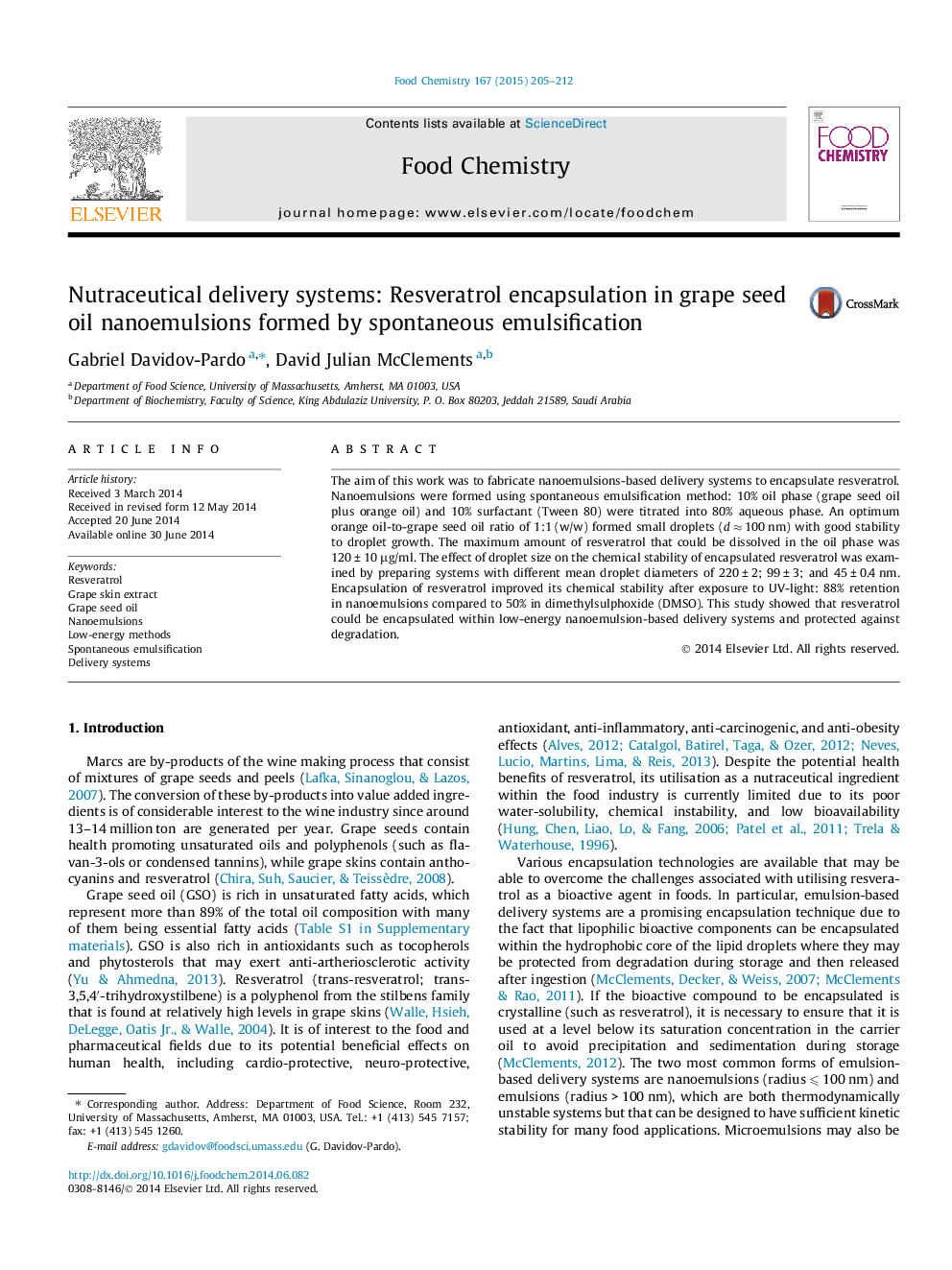| Article ID | Journal | Published Year | Pages | File Type |
|---|---|---|---|---|
| 7595423 | Food Chemistry | 2015 | 8 Pages |
Abstract
The aim of this work was to fabricate nanoemulsions-based delivery systems to encapsulate resveratrol. Nanoemulsions were formed using spontaneous emulsification method: 10% oil phase (grape seed oil plus orange oil) and 10% surfactant (Tween 80) were titrated into 80% aqueous phase. An optimum orange oil-to-grape seed oil ratio of 1:1 (w/w) formed small droplets (d â 100 nm) with good stability to droplet growth. The maximum amount of resveratrol that could be dissolved in the oil phase was 120 ± 10 μg/ml. The effect of droplet size on the chemical stability of encapsulated resveratrol was examined by preparing systems with different mean droplet diameters of 220 ± 2; 99 ± 3; and 45 ± 0.4 nm. Encapsulation of resveratrol improved its chemical stability after exposure to UV-light: 88% retention in nanoemulsions compared to 50% in dimethylsulphoxide (DMSO). This study showed that resveratrol could be encapsulated within low-energy nanoemulsion-based delivery systems and protected against degradation.
Keywords
Related Topics
Physical Sciences and Engineering
Chemistry
Analytical Chemistry
Authors
Gabriel Davidov-Pardo, David Julian McClements,
